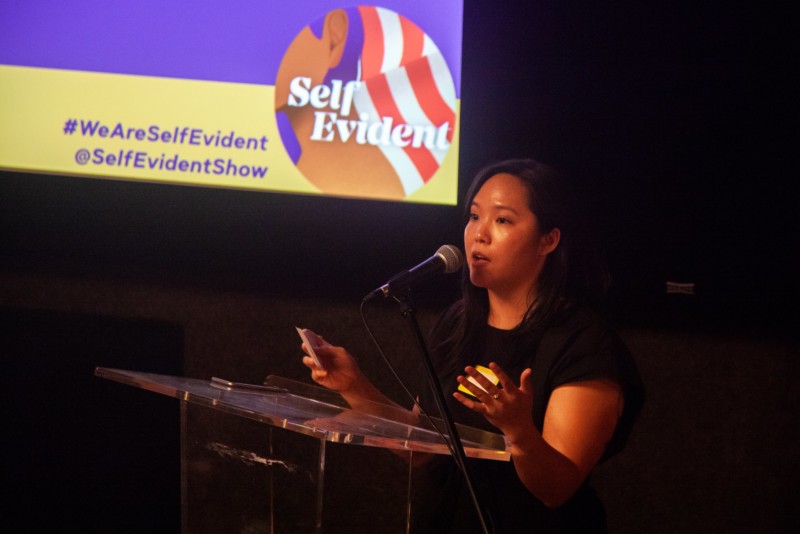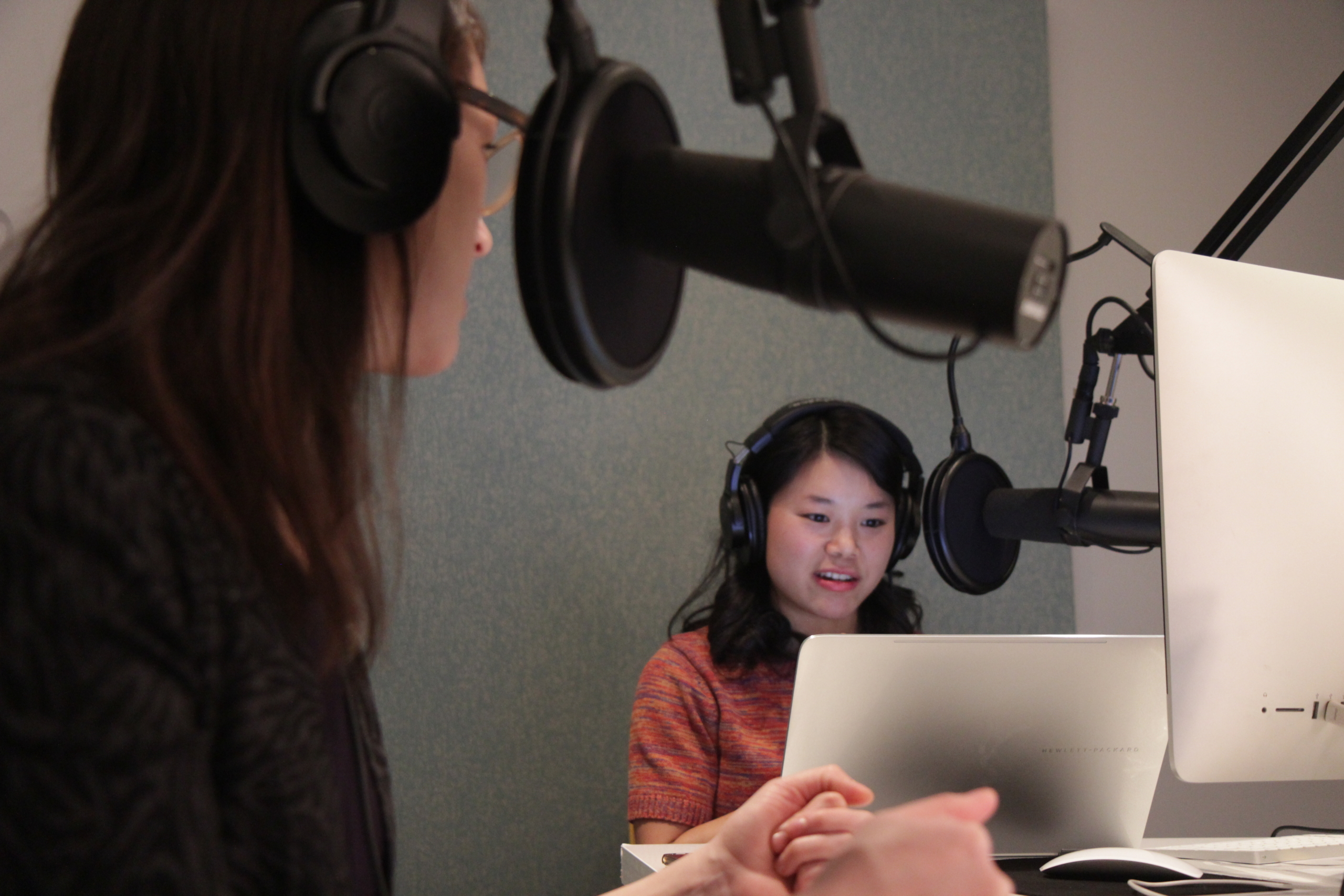Asian Americans have long lacked sufficient representation in the media. What little representation occurs tends to be limited to common tropes, such as the model minority or perpetual foreigner stereotypes, or else biases specific regional backgrounds, like East Asians. Podasting is no exception: Asian American Podcasters, a membership group launched earlier this year, counts roughly 300 podcasts created by Asian American Pacific Islanders—out of more than 700,000 podcasts total.
A new podcast, Self Evident, aims to better reflect the myriad experiences and communities that fall under the vague umbrella term “Asian American,” while emphasizing that, ultimately, Asian American stories are also American stories.
ICYMI: Why are #PodcastsSoWhite?
Hosted by author and food writer Cathy Erway, and created by documentary filmmaker James Boo and copywriter/UX consultant Talisa Chang, Self Evident dives into stories that “frame our [Asian American] stories within the context of America today,” as Chang says. The show’s name, which comes from a line in the Declaration of Independence, is “our way of signaling that Asian American experiences are not somehow separate or different from the American experience,” she says.
Boo and Chang began work on the podcast in January 2018, with the support of a fellowship from the Made in New York Media Center. Neither had any experience with audio storytelling when they started, but Chang believes that their outsider perspective helped shape the show in positive ways.
“As a user experience designer and researcher, I really believe in the idea of ‘building with, not for,’” she tells CJR in an email. From its inception, the show worked to “bring a community of listeners into the development… and give them a metaphorical seat at our editorial table.”

Self Evident co-creator Talisa Chang speaks at a launch event in New York. Photo courtesy Self Evident.
The Self Evident team had conversations with potential listeners, a process that resulted in a community advisory panel of more than 200 members, who have helped shape the focus and format of each of the first season’s six episodes. Reported narratives—tied to themes of home, identity, and belonging, among others—are juxtaposed with “community conversations,” during which advisory panel members discuss particular topics. The first episode, “Whose Dream Is This, Anyway?,” features two reported stories about family history: one set in the early 1900s, about one of the first South Asian families in Berkeley, California; and one contemporary, about resident resistance to a homeless services center in Irvine, California, where Asians comprise 45.7 percent of the population.
While the specificity of each episode should make the show relatable for its target audience of Asian American professionals, Self Evident’s creators hope it is also universal enough to be relevant to a wider, non-Asian audience. But in doing so, the show tries to avoid the trope of “Here’s an Asian thing that you should know about,” Boo says, in favor of, “Here’s a human being who is Filipino-American,” citing an upcoming episode as an example.
Senior producer Julia Shu, who comes to the podcast after stints at WNYC and Latino USA, adds that Self Evident tells Asian American stories “in the context of other POC communities.” A forthcoming episode, about how Asian American activists were influenced by Black civil rights activists, counters the still-prevalent depiction of Asian Americans as perpetual foreigners who are often portrayed as at-odds with other racial groups over issues such as affirmative action.
Several people encouraged Self Evident to start small, Boo says. Instead, the show launched with a team of 11—six producers, four audience development members, and one executive producer, in addition to a network of freelancers—and its few early episodes have a production value more common to NPR-backed projects than an independent show in its first season. The show raised a combined $50,000 from the Ford Foundation and the Center for Asian American Media, and crowdfunded an additional $43,000 from 1,004 backers. (Disclosure: I was one of them.) Those resources enabled Self Evident to invest in stories with “narrative satisfaction,” and to make space “for complexity and some messiness,” Boo says. Going big underscores the inherent value that Asian American stories have.
Growing the proverbial pie is a key goal of the show. Boo says Self Evident aims to partner with community organizations across the country to tell—and pay for—stories produced by local Asian American journalists, as well as to expand opportunities for collaboration with storytellers in other mediums.
Self Evident joins a growing number of Asian American podcasts such as Long Distance, which focuses on Filipino American stories and which Google Podcasts selected for its inaugural creator program with PRX. It also joins a larger pool of podcasts that center the experiences of people of color in stories for and by people of color—from Radio Ambulante, NPR’s Spanish-language narrative nonfiction podcast about Latin America, to Nancy, which is hosted by two Asian American producers and focuses on queer experience.
Such efforts challenge public radio’s institutional gatekeepers. Self Evident’s audience can hear their own stories, issues, and conversations in the show, at a depth that most mainstream podcasts are unlikely to reach. What’s more, storytellers in that audience have new opportunities to produce the stories they want to tell. After all, Boo says, “I did not work producing public radio.” And yet here he is.
New: India has lots of newspapers and lots of readers and one big journalism problem
Eileen Guo is an independent journalist and sometimes audio producer based in Los Angeles. She often writes about transnational politics, business, and culture. Follow her on Twitter @eileenguo.

